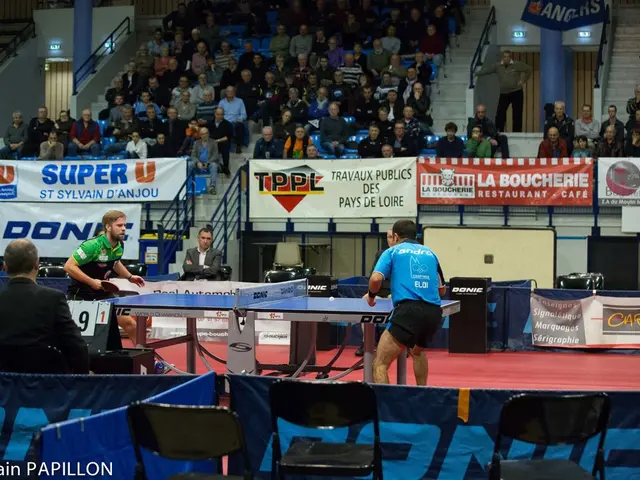German Trader Criticizes EU's Green Transition: 'Expensive for Consumers'
Lars Schernikau, a German commodities trader and former wind farm manager, has criticised the EU's green transition narrative at a conference hosted by Estonian shale oil producer Viru Keemia Grupp. Schernikau, whose political position on the EU's energy policy remains unknown, shared his views on the continent's energy future.
Schernikau argued that the EU's planned carbon tax and fuel tax (ETS2) will disproportionately affect the poor, making energy more expensive. He suggested that European countries should invest in research and development for sustainable energy solutions before phasing out gas and coal.
Criticising politicians who focus solely on the price per kilowatt-hour, Schernikau stated that the overall system cost is expensive for consumers. He noted that while he financially benefits from the development of wind and solar farms, he believes the European green transition threatens the continent's economy.
Schernikau believes that European countries should continue to develop existing technologies to make them more efficient and cleaner. He described Germany's decision to shut down nuclear power plants while betting on green energy as illogical, leading to a spike in electricity prices. Schernikau argued that Estonia should responsibly utilise its own natural resources, including oil shale, instead of listening to Brussels.
Schernikau's views challenge the dominant narrative of the EU's green transition. He argues for a more balanced approach that considers the economic impact on consumers and the responsible use of local resources. Despite his financial interest in renewable energy, he believes that a rushed transition could harm Europe's economy.
Read also:
- Crooked House Pub's Demolition: Council Orders Rebuild, Debate on Historic Building Protections
- Shaping India's Economic Progression: Readying the Financial System for Tomorrow
- Two farmers in Zambia take legal action against two firms with Chinese connections, alleging an ecological disaster caused by their operations.
- Deepening EU-India relations despite apprehensions regarding Moscow connections







